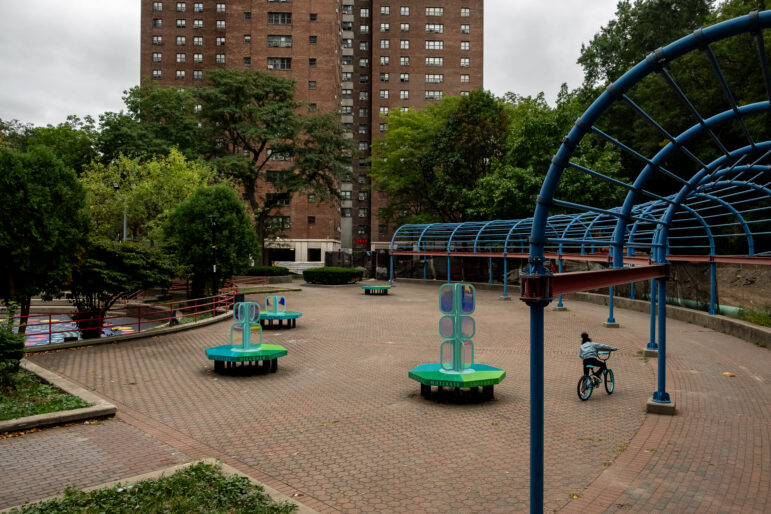For years, tenants and tenant advocates have lobbed criticism at the Neighborhood Entrepreneurs Program (NEP), Mayor Giuliani’s flagship small-landlord plan for rehabbing and privatizing city-owned housing. They say it runs roughshod over tenants’ concerns and prohibits them from getting into the city’s tenant co-op program.
This month, they’ve started doing something about it on two fronts–a two-pronged legal and political pincers they hope will make the program more accountable to tenants.
NEP hires local landlords to rehab decrepit city buildings with subsidized loans and grants. The new owners are supposed to shift tenants into nearby buildings while they fix up the properties, then move the original tenants back in, promising low rents for 15 years. The city chooses which buildings get into the program, and opting out is difficult for tenants.
Now, a few enterprising public interest attorneys have figured out a way to give tenants a second chance at getting their buildings out of NEP and into tenant ownership, by using a process from a backwater of the city charter that permits court challenges to bureaucratic decisions.
Last fall, the housing agency turned down a group of Brooklyn tenants applying to make their dilapidated building a co-op through the Tenant Interim Lease program because more than 50 percent of them weren’t paying rent. Instead, the city slated their building for NEP. But as their South Brooklyn Legal Services attorney Jennifer Levy points out, tenants are legally entitled to withhold their rent in a building without services. For that, and because the housing agency has never set forth guidelines for the decision-making process, she helped the tenants file a challenge to the decision late last month.
“Since the advent of NEP, there’s been a general feeling that the Department of Housing Preservation and Development is getting harder on TIL applications,” Levy explained. “There should be a process for internal review, an opportunity for tenants to appeal the decision within the agency.” The lawsuit could also force the city to adopt official rules for rejecting and accepting buildings.
The technique’s not guaranteed: Harvey Epstein, a Manhattan Legal Aid attorney is now appealing a similar case that he lost last week.
But it may not matter, since NEP may soon have organized opposition. Two upper Manhattan city councilmembers, Stanley Michels and Bill Perkins, say they have been besieged with NEP complaints. Perkins says they are now engineering a hearing as a forum for complaints. Advocates hope the plan is a sign that the council will stop rubber-stamping buildings into NEP and start exercising its veto power.
“I’ve had some preliminary conversations with [Housing and Buildings Committee Chair Archie] Spigner,” reported Perkins. “If there are problems, they’ll come to light and can get fixed.”







